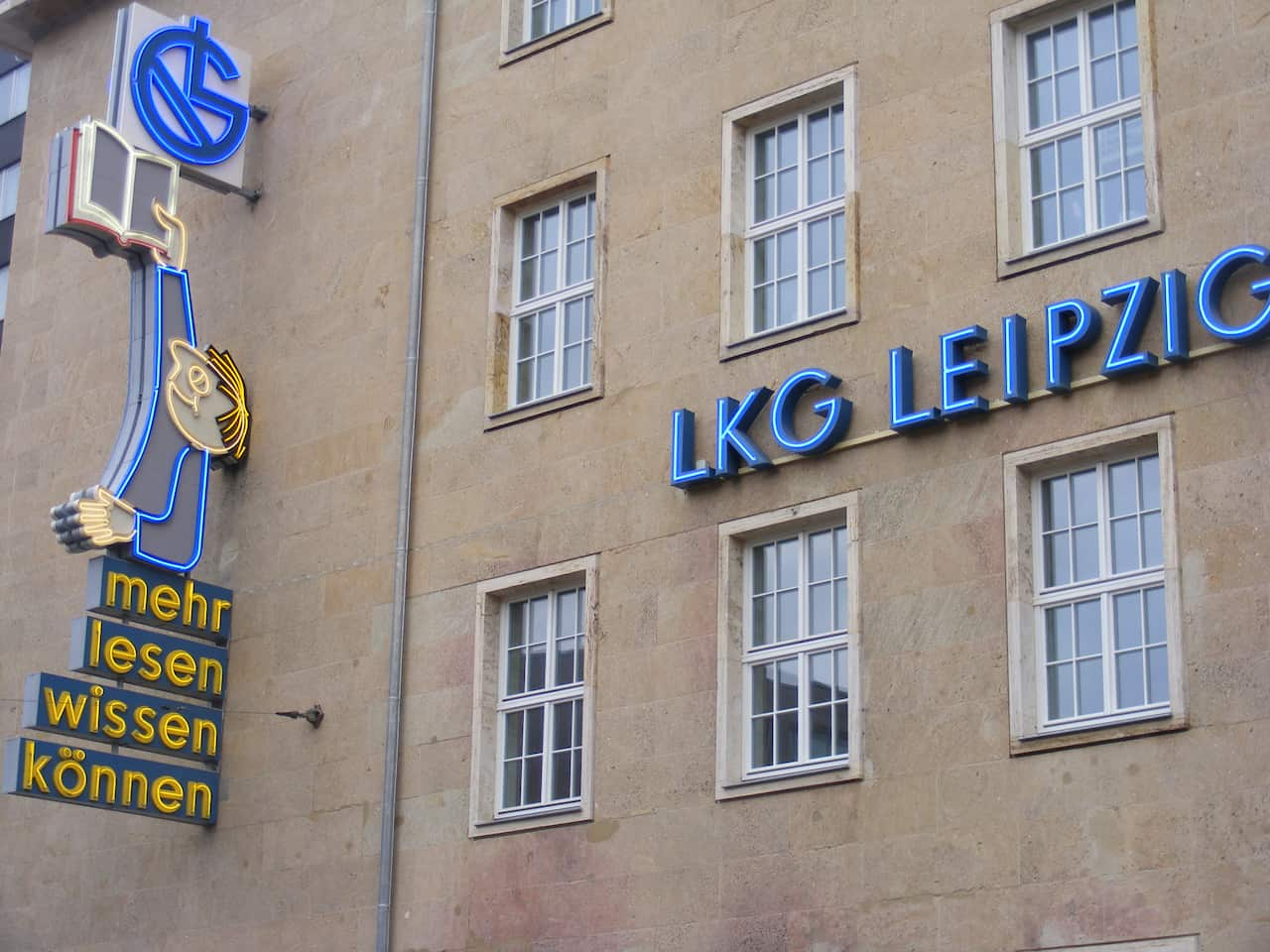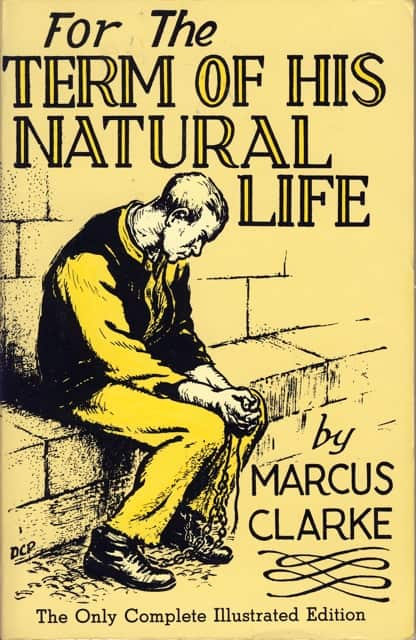Australian literature is more powerful than one might think. New research has now revealed that Australian publications played an important role during the Cold War for audiences that weren't free to chose their own books.
Dr Christina Spittel, University of New South Wales Lecturer in English explains that the East German love affair with Australian literature began even in the early days of the Cold War.
"It starts in 1948, before the East Germans founded the German Democratic Republic," she explains to SBS German.
"It starts with work by war correspondent Wilfred Burchett, who writes some very useful political work that the East Germans want to have in print, partly because it supports the point they are making but it comes from someone who lives in the West, rather than in the Soviet Union."
As a Westerner, the Australian Burchett attracted the interest of political leaders and became a much-welcomed voice for Communist ideals.

"There is always a moment for an Australian book in East German history, the East Germans are very interested in Australian writing," says Dr Christina Spittel, who has co-edited a book on the subject of this unusual cooperation, titled Reading through the Iron Curtain.
What do you do with literature, when you can actually cut your population off from the world?
Dr Spittel says that censorship in the former Communist bloc was quite similar across the board; however, due to the geographic and cultural isolation of East Germans behind the Berlin Wall, the freedom of the arts in the GDR was quite an exceptional case.
"They had a censorship authority in the capital, in East Berlin," she explains. "And basically, every book that was to be printed in East Germany, had to have a permission to be printed, otherwise you would not get that printed.
"And that was secured from the Ministry of Culture in Berlin."

Spittel co-edited the book with Professor Nicola Moore who confirms that all printing presses in the country were kept away from public access and that even basic necessities, like printable paper, were strictly limited and under state control.
"Behind the Iron Curtain, even mentioning the word 'censorship' could get you into trouble with the authorities," says Professor Moore.
Due to the strict censorship laws, which were never actually called that, many potential authors did not even bother to apply for publishing rights with the authorities. Some East Germans tried to get their books published in the West while others simply stopped writing.
"They were certainly keen to have their population reading - but only the right books."
In spite of this, reading was still considered to be a highly valued practice in East German Socialism, where it was vital for the working class to be educated. Professor Moore explains, "They were certainly keen to have their population reading."
"In fact, reading was considered very, very important for the population generally, working class and all the way up - but only the right books.”
"You can think of it as a kind of positivist approach to censorship," Moore adds.
Listen to the related story (in German) here:
The most successful foreign-language book behind the Berlin Wall was from Australia
There were many Australian books published in East Germany, in spite of the heavy censorship of Western literature over four decades. Nevertheless, there was one book that broke all the records. For the Term of His Natural Life by Marcus Clarke - which was first published in 1874.
"It is so successful, it is the most successful foreign-language book published in East Germany," explains Professor Moore. "So more successful than any other English language book, French book, Spanish book.”
"It is about being locked up and that was of course a fate that many East Germans shared."
It became not only the most popular Australian book behind the Berlin Wall, but it was also the most successful book that had been translated into German. Even the heavily indoctrinated Russian literature from the Soviet Union could not compete.

The 19th Century Australian author Marcus Clarke ranked number one on the bestseller list in one of the most oppressive dictatorships during the Cold War.
Under the Communist regime, 11 hardcover and 6 paperback editions were published of this Australian classic. The Clarke novel depicts the hard life of the first convicts that arrived in Tasmania almost 200 years ago.
"The convicts were lodged on Sarah Island in barracks flanked by a two-storey prison whose cells were the terror of the most hardened. Each morning they received their breakfast of porridge, water and salt, and then rode under the protection of their guards to the wood-cutting stations where they worked without food until night." - Excerpt from ‘For the Term of His Natural Life’, a classic Australian adventure story.
One theory for the book's success is the similarities East Germans felt with their situation a hundred years on. The convicts were cut off from the outside world and had to stick together against the authorities, just like Germans behind the Wall did, just to have some kind of normal life.
"It is about being trapped somewhere, it is about being locked up and that was of course a fate that many East Germans shared," explains Spittel.
East Germans were reading between the lines of this Australian literature, even under the strict eyes of the Stasi secret service.
Communist party officials failed to notice that this interpretation somewhat undermined their cause until it was too late in 1989. On a cold November night, people took to the streets to tear down, not only physical walls that isolated them but also cultural ones, making western literature, music and the arts accessible to everyone.

Australia too "one of the worst censors in the Western world"
In writing their book on the subject, Professor Moore also stresses that censorship is not only a tool for dictatorships, in order to influence public opinion. Even in Western countries such as Australia, the banning of books has a long history.
"People’s suitcases were routinely searched all the way up until the 1970s in Australia for banned publications," says Professor Moore.
Restricting reader's access to literature was popular on both sides of the Iron Curtain, just for different reasons. Many migrants arriving in Australia, as well as holiday-makers returning home, were targeted by customs once they had arrived on Australian soil.
"There are many of us who remember having their suitcases searched for D.H. Lawrence and so on," says Moore, referencing the infamous book Lady Chatterley’s Lover, which was once banned in Australia.
Moore has focused much of her research on censorship in Australia. “Australia had a very inglorious history of book banning," she argues.
"We are one of the worst censors in the Western world but our censorship targeted obscenity. At some point 510 books banned that had some kind of literary or scholarly merit and broadly across the 20th Century, about 16-thousand books were banned.” says Professor Moore.
SBS’ new spy drama Deutschland 83 brings audiences a riveting glimpse of life behind the Iron Curtain in Soviet controlled East Germany.
Deutschland 83 airs on SBS at 8:30pm Thursday nights and then on SBS OnDemand - watch the first episode below or at on SBS OnDemand:
[videocard video="872137283931"]
*Australian Literature in the German Democratic Republic: Reading through the Iron Curtain by Nicole Moore & Christina Spittel is available through Anthem Press.
